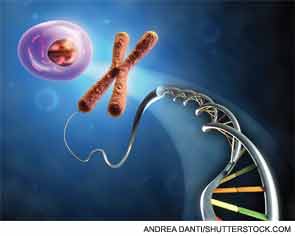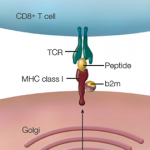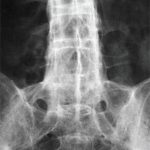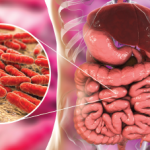
SAN DIEGO—During the past several decades, an understanding of the pathogenesis of many rheumatic diseases, such as rheumatoid arthritis (RA) and psoriatic arthritis (PsA), has been illuminated by the discovery of the key role played by certain human leukocyte antigen (HLA) alleles. What is now known, according to Robert Winchester, MD, professor of pediatrics, medicine, and pathology in the department of pathology and cell biology, division of rheumatology, at the College of Physicians and Surgeons of Columbia University in New York, is that both RA and PsA are autoimmune in pathogenesis, and that the most important determinants of disease susceptibility are certain alleles encoding the particular major histocompatibility complex, HLA. “While the roles and significance of the HLA genes differ in these two diseases, the HLA molecules encoded by these genes likely contribute importantly to specifying the type of adaptive immune response that underlies each disease,” he said.
What are the implications of this knowledge on understanding the pathogenesis of RA and PsA? Dr. Winchester walked participants through an answer to this question via an elegant lecture on the meaning and significance of HLA associations in rheumatologic diseases during the 2013 Paul Klemperer, MD, Memorial Lecture, “Rheumatoid Arthritis, Psoriatic Arthritis and Autoimmunity: Good Genes, Elegant Mechanisms, Bad Results,” here at the 2013 ACR/ARHP Annual Meeting, held October 26–30. [Editor’s Note: This session was recorded and is available via ACR SessionSelect at www.rheumatology.org/sessionselect.]
Adaptive Immune Response
The heart of the adaptive immune response is the T-cell receptor–peptide–HLA molecule interaction, he said, which is also the cornerstone on which the development of autoimmunity rests. Autoimmunity develops through two major consequences that occur when the T cells of the adaptive immune system are challenged to recognize many different pathogen peptides. The first consequence, he said, is somatic generation and thymic selection of T-cell repertoire on self-peptides bound to self-HLA. “Because the entire T-cell portion of the adaptive immune system is built on physiologic self-recognition, this leads to the risk that certain individuals will develop autoimmunity,” he said.
The second consequence is diversification of the HLA system to develop new alleles that better bind these various peptides because of the need of HLA molecules to bind and anchor each of the different pathogen peptides with high affinity, he said. “Since certain HLA molecules bind particular self-peptides that are expressed on cells and tissues comprising the joint, these self-peptides become targets of the autoimmune adaptive immune response,” he said, adding that, “these, in turn, drive the inflammatory response once they are triggered by still-unknown processes.”
Disease Susceptibility: Rheumatoid Arthritis
Citing work done in concert with Peter Gregersen, MD, a geneticist who heads the Robert S. Boas Center for Genomics and Human Genetics at the Feinstein Institute for Medical Research in Manhasset, N.Y., he described what is known about disease susceptibility in RA. Their research shows that RA disease susceptibility is associated with at least eight different alleles of HLA-DR locus, and that each allele encodes a similar sequence (i.e., shared epitope). According to Dr. Winchester, the alleles in patients with RA that are responsible for RA susceptibility are identical in sequence to the alleles in healthy persons (i.e., people with good genes) and are not rare abnormal genes. He said that studies show that at the genotypic level, the risk of RA is additive. For example, the risk conferred by two shared epitope alleles is greater than that conferred by one shared epitope allele. Similarly, the risk conferred by one shared epitope allele is greater than that conferred by alleles lacking the shared epitope structure, although dominant protection is not conferred by any shared epitope negative alleles. “Importantly,” he said, “the clinical phenotype of rheumatoid arthritis is essentially the same regardless of which among the eight alleles a person inherits.”


